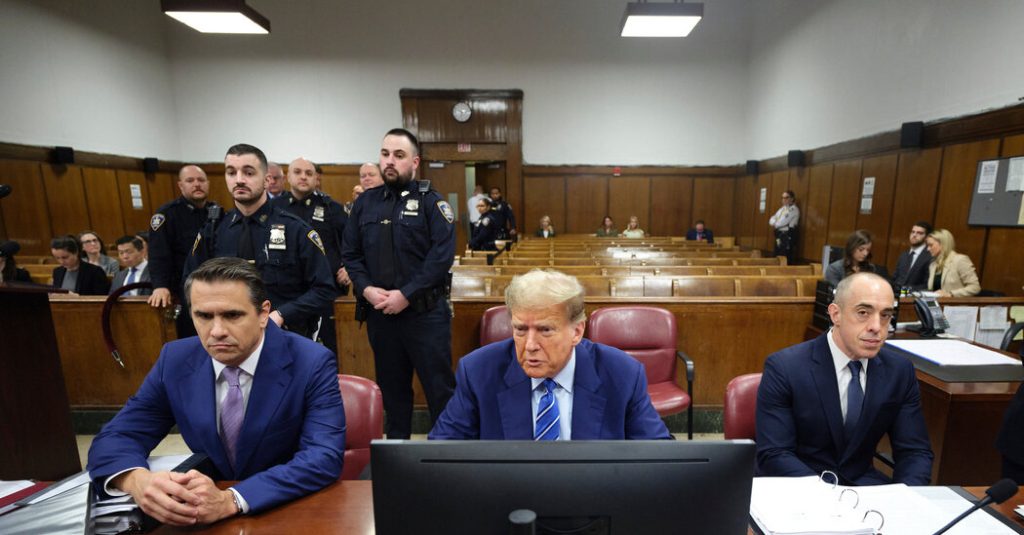In the case of People of the State of New York v. Donald J. Trump, prosecutors are set to introduce their case against the former president to a jury of 12 on Monday. The trial marks the first prosecution of an American president and has the potential to label Trump as a felon ahead of another possible White House run. The prosecutors have insider witnesses, a favorable jury pool, and a scandalous set of facts to present, but mounting a conviction is not guaranteed. Trump’s defense team will try to exploit apparent weaknesses in key witness credibility, presidential culpability, and legal intricacies, while prosecutors aim to support their case with evidence that backs up the testimony of former Trump fixer Michael D. Cohen.
The case will revolve around the payoff to porn star Stormy Daniels and her silence about a sexual encounter with Trump, with prosecutors framing the trial as a test of the rule of law and questioning whether Trump violated it. The Manhattan district attorney, Alvin L. Bragg, has characterized Trump’s actions as election interference designed to conceal sex scandals from voters in 2016. The trial may delve into Trump’s associates who will testify against him, including David Pecker, Hope Hicks, and Michael Cohen. If convicted on the 34 felony counts, Trump could face imprisonment and lose his right to vote, marking the first instance of a convicted criminal serving as president if he were to win re-election.
Bragg’s prosecution places a high-stakes bet on his career and legacy with a case he initially rejected but later pursued, leading to Trump’s indictment just over a year after taking office. The trial centers on three hush-money deals engineered to prevent damaging stories about Trump from surfacing during the 2016 campaign, involving payments to Daniels, Karen McDougal, and a former doorman. The prosecutors allege that Trump orchestrated a cover-up to conceal reimbursements to Cohen for the Daniels payment, presenting falsified records as evidence, which Trump’s defense will likely argue he was unaware of. A lack of direct evidence linking Trump to the cover-up may pose a challenge for prosecutors, but they aim to use Cohen’s testimony and corroborating evidence to support their case.
The trial hinges on Cohen’s credibility, as he is expected to provide key testimony about Trump’s involvement in the hush-money deals. The defense will likely paint Cohen as a serial liar with an agenda against Trump, aiming to undermine his testimony. Prosecutors will present evidence supporting Cohen’s claims and may rely on other witnesses to back up crucial aspects of his account, such as an Oval Office meeting where the repayment scheme was discussed. The jury, comprised of Manhattan residents who are generally unfavorable towards Trump, may play a pivotal role in determining the outcome, with the potential for mistrial if even one juror dissents.
The trial represents a historic moment in American politics, as a former president faces a jury of citizens who will decide his fate in a court of law. The case has the potential to shape Trump’s political future, with implications beyond his personal liberty, including his right to vote and the possibility of a second term in office. Prosecutors will seek to present a compelling case that Trump violated the law and participated in a cover-up, drawing on a web of evidence and testimony to make their argument. The trial is expected to unfold over the course of several weeks, culminating in a decision that could have far-reaching consequences for Trump and the country.


